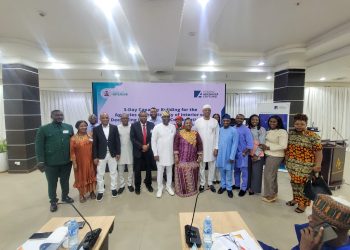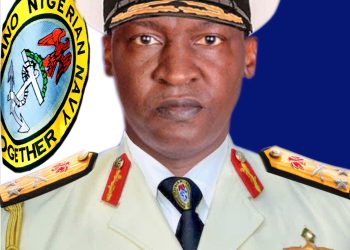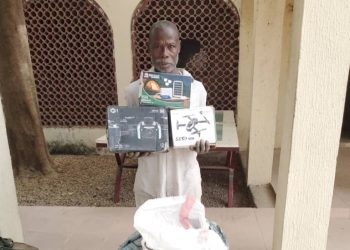By Nkechi Eze
In a significant stride toward climate resilience and inclusive development, the Nigerian Meteorological Agency (NiMet) has signed a renewed Memorandum of Understanding (MoU) with the Human and Environmental Development Agenda (HEDA) to enhance the dissemination of agro-meteorological information to smallholder farmers across Nigeria.
The formal agreement, signed at NiMet Headquarters in Abuja, deepens a partnership that first began in 2010. It underscores a joint commitment to leveraging weather and climate data for the empowerment of rural communities, particularly in improving early warning systems and promoting climate-smart agriculture.
Professor Charles Anosike, Director General and Chief Executive Officer of NiMet, hailed the partnership as a critical step toward making meteorological information more accessible and actionable for Nigerian farmers, who form the backbone of the country’s food system.
“This partnership is about bridging the gap between science and the people who need it the most,” Prof. Anosike said during the ceremony.
“We are not just exchanging documents; we are building a lifeline between climate data and the survival of millions of Nigerian farmers facing the realities of droughts, floods, and shifting weather patterns.”
He emphasized the role of synergy between national institutions and civil society in achieving development goals, particularly in the face of mounting climate risks. Prof. Anosike also offered NiMet’s broadcasting and studio facilities for the development of localized climate content tailored to farmers.
“We must simplify the science, speak the language of the farmers, and reach them through the right channels. Our studios are open for content that educates, warns, and empowers,” he stated.
Representing HEDA, Mr. Sulaimon Arigbabu, Executive Secretary of the HEDA Resource Centre, expressed appreciation to NiMet for sustaining the collaboration and providing leadership in climate data generation and outreach.
“We are grateful for the renewed opportunity to work with NiMet under the forward-thinking leadership of Professor Anosike. Together, we aim to bring weather and climate information directly to the farmers’ doorsteps in a way they can understand and act upon,” Arigbabu remarked.
He further highlighted the historical roots of the partnership and the need to deepen it in the context of accelerating climate impacts on rural livelihoods.
Also present at the ceremony was Miss Tonye Dappa, Legal and Liaison Officer for HEDA, who reaffirmed the civil society group’s commitment to grassroots advocacy and citizen empowerment through improved access to environmental information.
“With this MoU, we will scale up public education, strengthen local early warning systems, and build farmer resilience, especially in underserved communities,” Dappa noted.
The partnership will focus on co-developing farmer-focused weather advisory tools, building the capacity of community extension workers, and deploying climate risk awareness campaigns using radio, mobile platforms, and community meetings.
Both institutions stressed that accurate and timely climate information must no longer be a luxury but a right accessible to every farmer whether in the highlands of Mambilla or the riverine communities of the Niger Delta.
The renewed MoU is expected to advance Nigeria’s goals under the National Adaptation Plan and Sustainable Development Goals (SDGs), particularly SDG 13 (Climate Action), SDG 2 (Zero Hunger), and SDG 17 (Partnerships for the Goals).
In closing, Prof. Anosike reaffirmed NiMet’s broader commitment to working with credible partners to extend the reach of life-saving meteorological services nationwide.
“Our mission is simple: no farmer should plant blindly. With the right partnerships, we can ensure that climate information reaches every hand that tills the soil,” he concluded.
The agreement comes at a time when climate-related challenges such as desertification, erratic rainfall, and rising food insecurity are putting increasing pressure on Nigeria’s agricultural sector, highlighting the need for collaborative, data-driven adaptation strategies.















